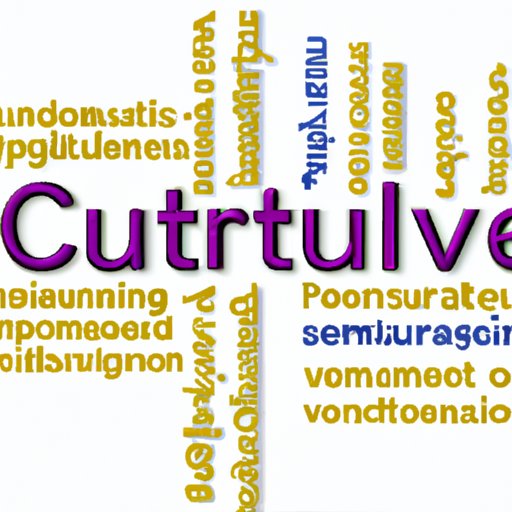Introduction
The term “culture” can be hard to define, but it is an important concept that has a significant impact on our lives. In this article, we will explore what culture is, how it influences society, and how it shapes individual identities. We will also examine the dynamics of culture and how it has evolved over time.
What is Culture?
Culture has been defined by anthropologists as “the way of life of a group of people, including their beliefs, values, behavior, and artifacts.” It encompasses both tangible elements, such as language and material objects, and intangible elements, such as values and beliefs. Culture is constantly evolving and adapting to new circumstances, and it can vary greatly from one region or country to another.
For example, there are cultural norms that differ between countries, such as the way people dress and interact with others. There are also cultural expectations that are specific to certain regions, such as the traditional foods eaten in an area or the types of celebrations that are held. These norms and expectations can shape the way people think and behave, and they can influence their decisions and actions.
The Dynamics of Culture
Culture has the power to shape societies in both positive and negative ways. It can have a profound effect on the political, social, and economic systems of a country. Research has shown that cultures that value cooperation and collaboration tend to be more successful than those that emphasize competition and individualism.
In addition, culture can also have a major impact on the environment. Studies have found that cultures that respect and protect the environment tend to be more sustainable than those that do not. For instance, a study conducted by researchers at Harvard University found that indigenous communities in the Amazon rainforest were able to maintain a healthy and balanced ecosystem due to their traditional practices of rotating crops and conserving resources.
Intersection Between Culture and Identity
Understanding culture is also essential for understanding individual identities. Culture can inform our beliefs, values, and behaviors, and it can shape the way we view ourselves and the world around us. For example, cultural traditions and customs can influence the way we dress, the food we eat, and even the language we speak.
Cultural norms also have a powerful impact on how individuals interact with each other. They can dictate how people express emotions, communicate with each other, and resolve conflicts. As a result, culture can play an important role in determining how individuals see themselves and how they relate to others.
Conclusion
In summary, culture can be defined as a set of shared beliefs, values, and behaviors. It is constantly evolving and adapting to different circumstances, and it can vary greatly from one region or country to another. Culture has the power to shape societies in both positive and negative ways, and it can have a major impact on the environment and individual identities.
Understanding culture is essential for understanding how societies function and how individuals interact with each other. By understanding the dynamics of culture, we can develop better strategies for solving problems and creating a more equitable world.
(Note: Is this article not meeting your expectations? Do you have knowledge or insights to share? Unlock new opportunities and expand your reach by joining our authors team. Click Registration to join us and share your expertise with our readers.)
